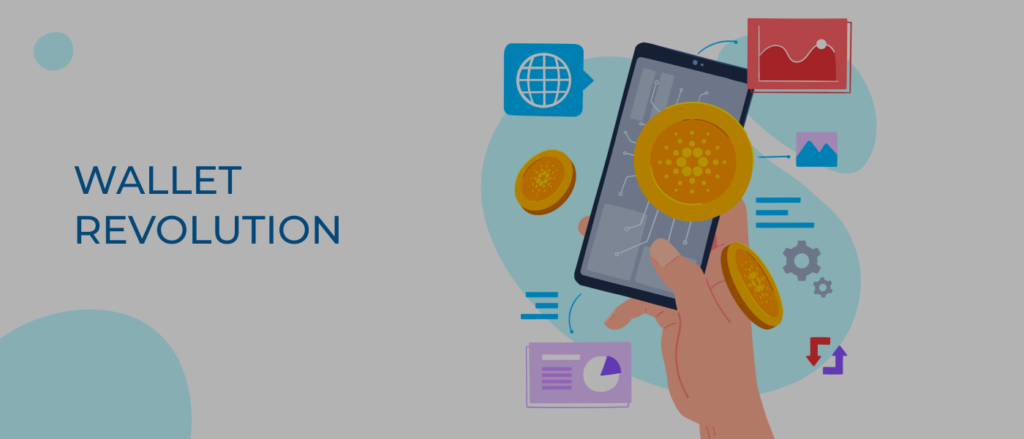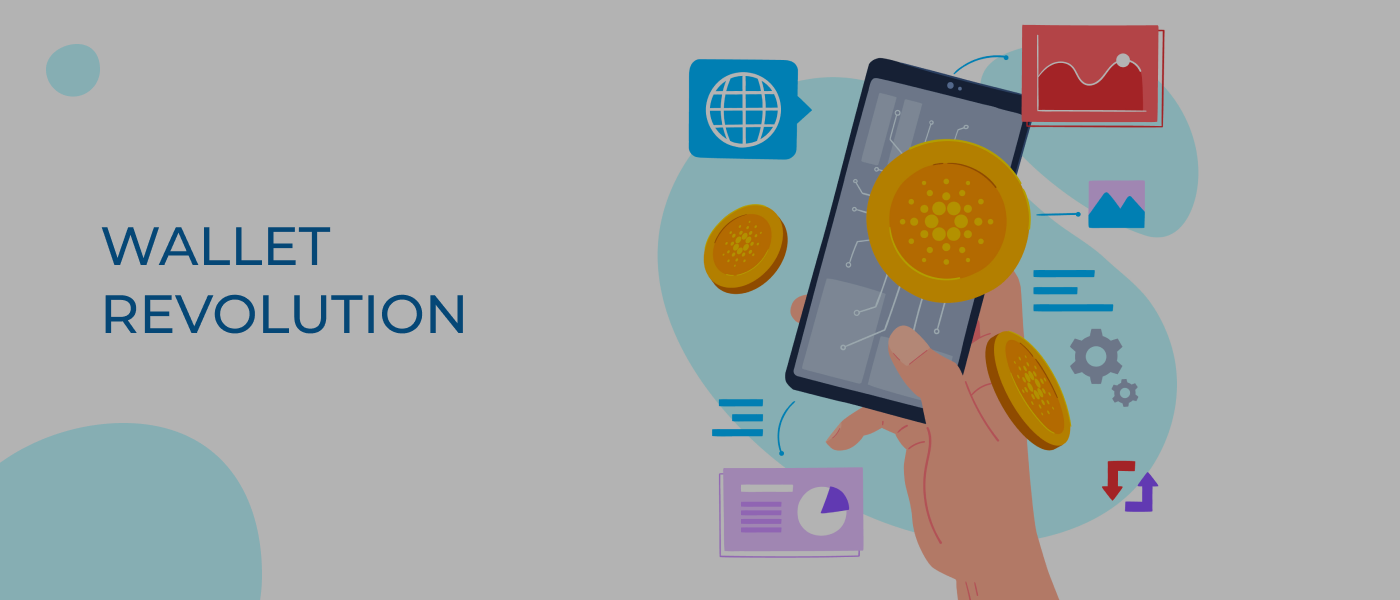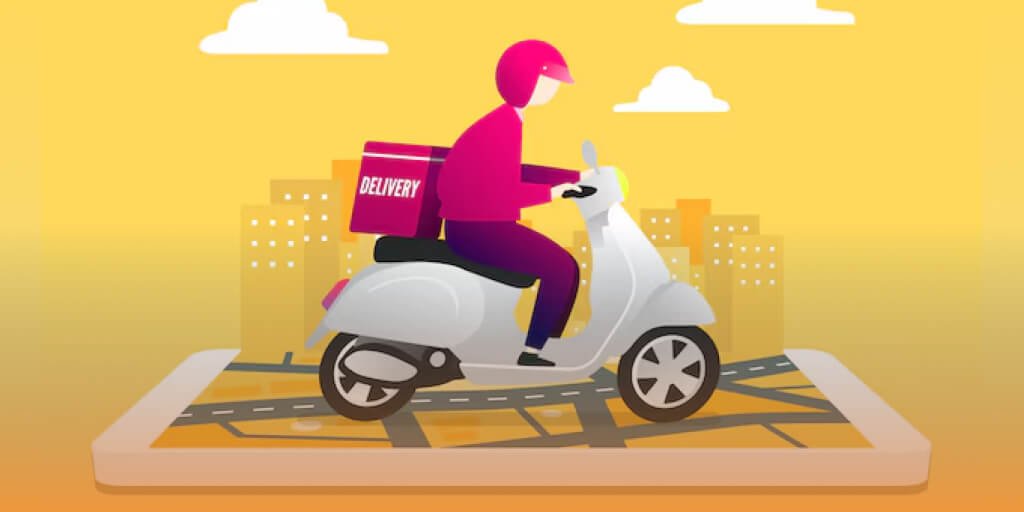As technology evolves, digital wallets have transformed how we manage finances. No more bulky wallets filled with cash and cards—digital wallets offer a sleek, convenient, and secure alternative, allowing users to handle their finances with a tap on their smartphone. In this blog, we’ll explore what digital wallets are, how they work, and how they’ve revolutionized traditional wallets.
Table of Content
What is a Digital Wallet?
A digital wallet, or e-wallet, is a virtual tool that allows users to store and manage money electronically on smartphones and computers. It facilitates secure payments, fund transfers, and document storage, such as boarding passes and IDs, all within one easy-to-use interface.
Demographic trends show that digital wallet usage is more common among higher-income individuals. About 55% of consumers earning over $100,000 annually use digital wallets, compared to just 41% of those making under $50,000. This suggests that higher disposable income may drive greater adoption of digital wallets.
According to emarketer, a survey by PYMNTs and AWS revealed that digital wallet users spend 31% more than non-users across various categories. Notably, restaurant transactions increased by 33%, retail sales by 17%, and grocery spending by 4% when using digital wallets.

How Does a Digital Wallet Work?
Digital wallets use advanced encryption for secure transactions. To pay, you select the digital wallet, authenticate via PIN, fingerprint, or facial recognition, and complete the transaction using your phone’s wireless features like Bluetooth or NFC. Payment methods include:
- Quick Response Codes (QR Codes): QR codes are matrix bar codes that store information that can be detected through your device’s scanning system.
- Near Field Communication (NFC): NFC allows two proximal devices to connect and transfer information between each other using electromagnetic signals.
Types of Digital Wallets
Digital wallets come in three types, each designed for different usage scenarios:
1. Closed-Loop Wallets: Issued by specific companies, these wallets are used only within the retailer’s ecosystem (e.g., Amazon Pay, Walmart Pay).
- Usage: Linked to a specific company for purchases in-store or online.
- Benefits: Rewards and discounts within the retailer’s environment.
- Limitations: Usable only within the issuer’s network.
- Regulations: Less stringent RBI requirements; basic KYC is reloadable.
2. Open-Loop Wallets: Versatile wallets like Apple Pay, Google Wallet, and PayPal, are usable across a wide range of merchants.
- Usage: Store multiple payment methods for transactions anywhere.
- Benefits: Flexibility and wide acceptance, but fewer personalized offers.
- Limitations: While open-loop wallets offer broad usability, they may not always provide the same level of personalized rewards, offers, and discounts as closed-loop wallets.
- Regulations: RBI’s PPI guidelines ensure security and comprehensive KYC.
3. Semi-Closed Wallets: Middle-ground wallets like Paytm and PhonePe, are used at select merchants.
- Usage: Accepted at partnered merchants for various services.
- Benefits: Balance of flexibility and exclusivity with rewards.
- Limitations: Usable only within participating merchant networks.
- Regulations: Governed by RBI’s PPI, with KYC and reporting requirements.
Key Features of Digital Wallets

- Anytime, Anywhere Payments: Fintech apps like digital wallets let you pay via your mobile device, eliminating the need for cash or cards, making payments quick and easy.
- One-Stop Solution: Manage multiple payment methods, bookings, and documents like tickets or passes all in one fintech app, simplifying transactions.
- Encryption: Sensitive data in financial technology apps is encrypted to prevent unauthorized access.
- Biometric Authentication: Fingerprint, facial, or iris recognition ensures you can access your fintech app only.
- Tokenization: Card details are replaced with secure tokens during transactions in fintech payment platforms, enhancing security.
- Quick Transactions: Contactless payments using QR codes or NFC in mobile payment apps speed up the payment process.
- Instant Transfers: Peer-to-peer transfers in fintech solutions allow for immediate transactions, which is ideal for splitting bills.
- Document Storage: Fintech apps allow you to store passes, tickets, and loyalty cards, keeping everything in one place.
- App Integration: Seamlessly pay for services like rideshares and food delivery within connected apps.
- Transaction History: Keep track of spending with detailed transaction records.
- Budgeting Tools: Some wallets offer budgeting features to help manage your finances.
How Digital Wallets Transformed Traditional Wallets
- Enhanced Security: Digital wallets offer features like biometric authentication and encrypted data storage, reducing the risk of unauthorized access compared to traditional wallets.
- Reduced Clutter: They eliminate the need for multiple cards and cash, making your life more organized and clutter-free.
- Seamless Transactions: With contactless payments and quick fund transfers, digital wallets reduce hassle at counters and provide a seamless experience for both consumers and merchants.
- Increased Accessibility: Digital wallets provide easier access to banking services, particularly in underserved regions, promoting financial inclusivity.
- Tech Integration: They integrate with wearables and IoT devices, enabling transactions via smartwatches and smart home systems.
Popular Digital Wallets
- Apple Pay: Launched in October 2014 in the United States. By 2023, it was used by over 507 million users globally.
- Google Wallet: Initially launched in 2011 in the United States, relaunched in 2022. Over 100 million people are estimated to use it as of 2023.
- Samsung Wallet: Introduced in 2015 (as Samsung Pay) in South Korea. It has around 16 million users worldwide as of 2023.
- PayPal: Launched in December 1998 in the United States. As of Q2 2023, PayPal has over 431 million active accounts globally.
- Venmo: Launched in 2009 in the United States. As of 2023, Venmo has around 90 million users in the U.S. alone.
- Paytm: Launched in 2010 in India. It has over 350 million users in India as of 2023.
- PhonePe: Launched in 2016 in India. More than 400 million registered users in India as of 2023.
- Amazon Pay: Introduced in 2007 in the United States. Used by over 50 million customers globally as of 2023.
The Future of Digital Wallets
The future of digital wallets is bright, with advancements like blockchain integration for better security, wider global acceptance, and AI-driven personalized financial insights and recommendations on the horizon.
Conclusion
Digital wallets are revolutionizing finance, offering unmatched convenience, security, and efficiency. With just a few taps, managing finances has never been easier. As digital transformation advances, these wallets will continue to simplify and secure transactions.
At Hutech Solutions, we provide secure, user-friendly digital wallet systems designed to enhance customer experiences and drive business growth. Contact us today to discover how our solutions can keep you ahead in the evolving digital economy.
*Content produced for educational & informational purposes only.
Content authored by Kashvi Dikshit
Frequently Asked Questions
Yes, our digital wallet solutions can seamlessly integrate with various apps, allowing users to pay for rideshares, food delivery, and other services without leaving the app.
Digital wallets must adhere to RBI’s Prepaid Payment Instruments (PPI) guidelines, which include stringent KYC requirements, security standards, and regular reporting to ensure safety and efficiency.
Absolutely. Digital wallets streamline payment processes, reduce the need for physical cash management, and provide insights into customer spending patterns, making them valuable for businesses of all sizes.
Digital wallets are evolving with features like blockchain integration and AI-powered insights. Partnering with Hutech Solutions ensures your business remains at the forefront of these innovations, providing customers with cutting-edge financial tools.
Ready to Advance your Digital Transformation?Get in touch with us.
Discover why Hutech is the right partner for your business.
MAIL US AT
sales@hutechsolutions.com
CONTACT NUMBER
+91 90351 80487
CHAT VIA WHATSAPP
+91 90351 80487
Humantech Solutions India Pvt. Ltd 163, 1st Floor, 9th Main Rd, Sector 6, HSR Layout, Bengaluru, Karnataka 560102




